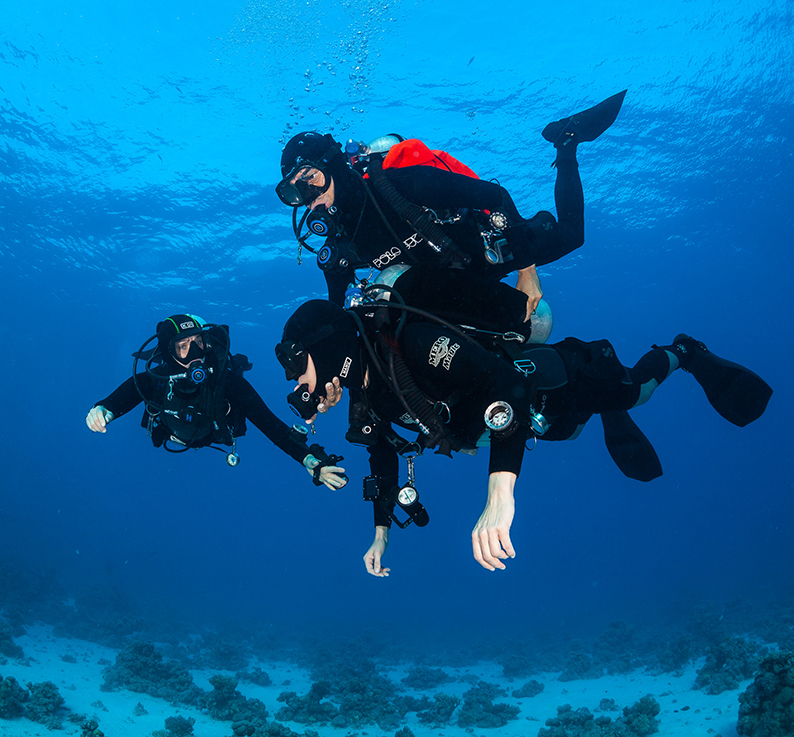Rescue Primer
Rescue Primer
Why Take This Course?
Scuba diving is a safe outdoor activity with low accident rates, but as with all activities, participants should be prepared to handle emergencies and perform rescues to assist team members. The awareness of your ability to help will increase your confidence and make your dives safer and more enjoyable.
GUE’s Rescue Primer is a course designed to teach divers basic rescue techniques relevant to scuba diving emergencies.
Who Is It For?
Being able to prevent or handle stressful situations and emergencies underwater is one of the most meaningful skills you will ever learn, so the Rescue Primer should be high on every diver’s to-do list.
This course is recommended to all who are planning to pursue diving at any level. This primer is best taken after the Navigation Primer, as it requires competence in navigational skills.
WHAT WILL I LEARN?
Course outcomes include, but are not limited to: assisting distressed divers on the surface and underwater, including unconscious diver recovery; missing diver protocols; surface management of a diving emergency; and diving BLS skills for DCI.Applicants for a GUE Rescue Primer must:
- Be a minimum of 16 years of age.
- Be physically and mentally fit.
- Be a non-smoker.
- Be able to swim.
- Obtain a physician’s prior written authorization for use of prescription drugs, except for birth control, or for any medical condition that may pose a risk while diving.
- Have passed the GUE Open Water Diver, GUE Performance Diver, or GUE Fundamentals courses (formerly GUE Rec1 or GUE Fundamentals).
- Have completed at least 15 non-training dives following completion of either GUE Open Water Diver, GUE Performance Diver, or GUE Basic Fundamentals certification.
- Have completed basic life support (BLS) training from a recognized training agency within the twenty-four months prior to the start of the class.
- Have completed and passed GUE Navigation Primer or show competency in advanced compass and natural navigation, including using a spool or reel as a guideline.
- If using a drysuit during the course, have conducted at least 15 non-training dives in a drysuit or have conducted 10 non-training dives utilizing a drysuit following completion of GUE Drysuit Primer certification.
- For a full list of course prerequisites, click here.
This course can be conducted as part of GUE Recreational Diver Level 2 program.

Take the Next Step
Deep Primer
GUE’s Deep Primer is a course designed to teach divers the use of triox 30/30 as a GUE standard gas to reduce the effects of increased gas density in recreational divers.
Doubles Primer
The GUE's Doubles Primer is a non-certification course designed to teach divers how to safely and comfortably dive a double tank configuration using proper equipment and techniques.




